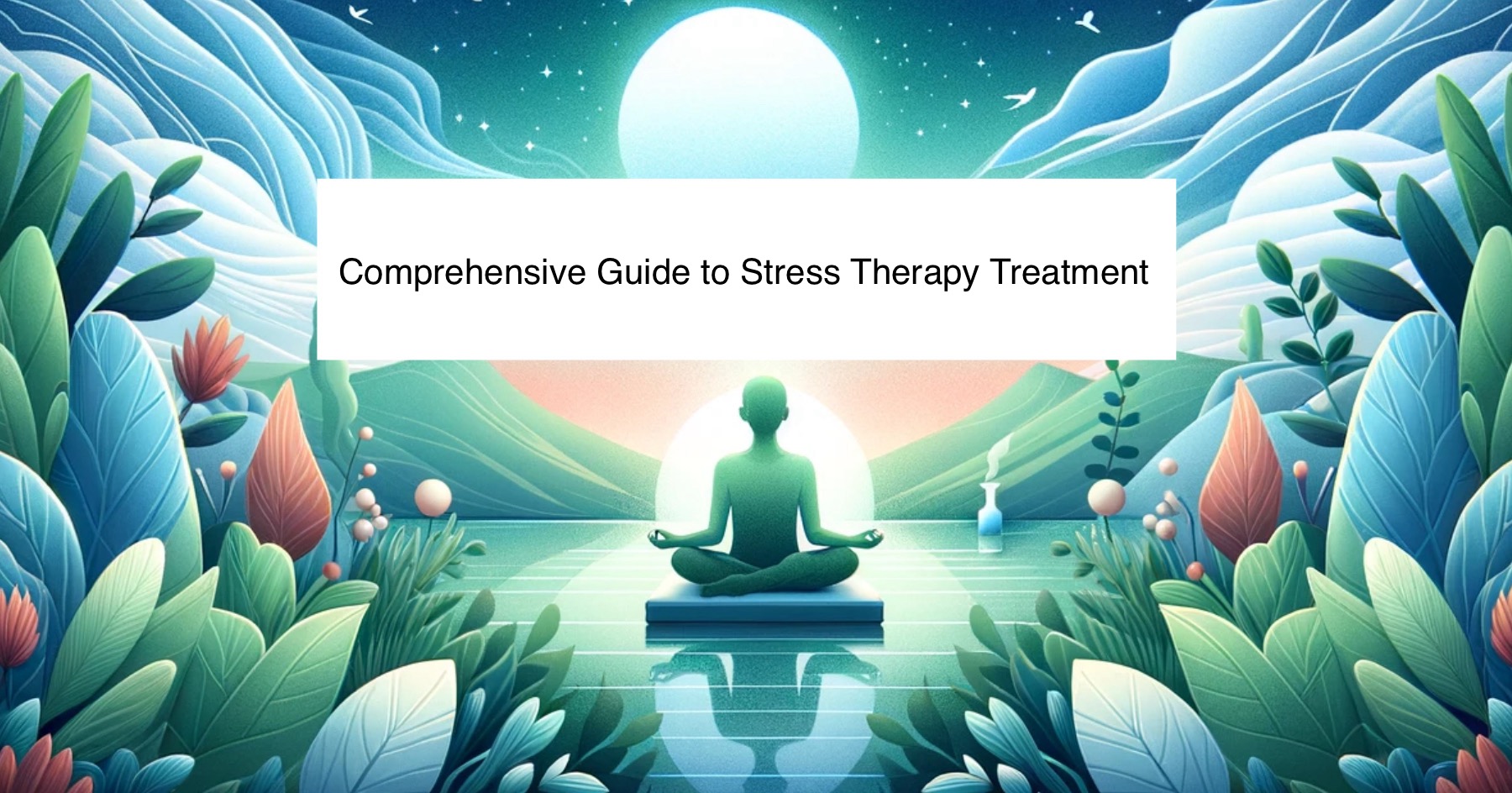Stress Therapy Treatment, a Comprehensive Guide

Table of Contents
- What Is Stress?
- Stress Management Therapy
- Benefits
- Types
- Tips to Reduce Stress
- Finding a Therapist
What Is Stress?
Stress is a feeling of overwhelm or doubt related to situations or things that happen to us. It can be physical, mental, or emotional. For example, stress can feel like an upset stomach, lots of thoughts racing through the mind, or self-doubt.
Stress can be caused by a wide variety of life events and transitions, both positive and negative. These include relationship changes, work or employment changes, moving to a new place, illness or death, and other life challenges.
It's important to understand that stress can arise from positive changes too. The Social Readjustment Rating Scale, developed by Thomas Holmes and Richard Rahe, includes life events that may lead to stress, encompassing both positive and negative experiences.
Possible Causes of Stress
Many situations or events can cause stress, such as:
- Addition of a new family member
- Changes in personal habits, education, career, or relationship dynamics
- Changes in eating or sleeping habits
- Changes experienced by a spouse or partner
- Conflict at work or school, or with family or friends
- Death, injury, or illness of a friend or family member
- Divorce, separation, breakup, or reconciliation of a partnership, marriage, or relationship
- Financial status change, new loan or mortgage, or mortgage or loan default
- High personal achievement
- Holidays or vacations
- Injury or recovery or physical, mental, or emotional health challenges
- Legal challenges
- Life transitions such as pregnancy or retirement
- Living condition changes or a household member moving in or out
- Recreational or social activity changes
- Responsibility changes
- Sexual challenges
- Social relationship conflict
Symptoms of Chronic Stress and Treatments
Stress Management Therapy
Stress management therapy involves techniques, strategies, or programs specifically designed to reduce stress levels, prevent stress, or cope with situations that could lead to increased stress levels. Examples include psychotherapy (talk therapy) and relaxation training.
Benefits of Stress Therapy
There are many benefits of stress therapy, including reducing the risks associated with stress. Negative effects of stress include physical, mental, emotional, and social challenges, and compromised quality of life. Some examples of the negative effects of stress include:
- Increased anger
- Negative interactions with family, friends, or others
- Trouble sleeping
- Increased chance of getting sick
Stress negatively impacts every body system, including digestion, reproduction, bones and muscles, breathing, the heart and circulation, nerves, tissues, organs, and hormones. For example, people who are stressed are likely to have high blood pressure.
Benefits of Stress Therapy Include:
- Better digestion
- Better mood
- Better sleep
- Chronic disease management
- Increased productivity
- Improved immune system function
- Improved mental and emotional health
- Improved physical health
- Improved relationship interactions
- Lower blood pressure
- Reduced pain
Types of Stress Therapy
There are different types of stress management therapy. Cognitive behavioral therapy (CBT), mindfulness-based cognitive therapy (MBCT), and psychodynamic therapy are talk therapy methods that can focus specifically on stress.
Cognitive Behavioral Therapy (CBT)
Cognitive behavioral therapy is a type of talk therapy commonly used for stress management. This method focuses on the connection between thoughts, feelings or emotions, and behaviors, and how making changes to one can change others, as well as their outcomes.
CBT programs specifically for stress can help people change their thoughts, feelings, and behaviors in ways that promote relaxation and reduce stress. CBT-based stress management has been found to reduce levels of stress and anxiety, improve psychological well-being, and increase confidence.
Mindfulness-Based Cognitive Therapy (MBCT)
Mindfulness focuses on awareness of internal thoughts and feelings, as well as external surroundings and environments. Mindfulness-based cognitive therapy combines mindfulness practices such as meditation with cognitive behavioral therapy and can focus specifically on stress management.
Mindfulness-Based Stress Reduction (MBSR)
Mindfulness-based stress reduction combines mindfulness techniques with stress management techniques to prevent and address stress. It may include meditation, relaxation, yoga, body awareness, and other techniques. MBSR has been shown to reduce stress, anxiety, depression, and burnout, and to improve quality of life.
Psychodynamic Therapy
Psychodynamic therapy is a type of talk therapy that explores a person's past experiences, emotions, and beliefs and their connection to their current mindset. The goals of psychodynamic therapy are to increase a person's self-awareness and understanding of the influence of the past on present behavior.
Who Needs Stress Therapy?
Stress therapy is not only for people with a diagnosis or mental health condition. It can be beneficial for anyone dealing with high levels of stress, experiencing any level of stress for a long period, or going through a challenging life event or transition. Those who anticipate a future stressful life event or transition can benefit from preventive stress management therapy.
Tips to Reduce Stress
In addition to stress therapy, there are many things people can do to prevent and cope with stress. This can be anything that promotes relaxation, such as:
- Taking a walk
- Reading a book
- Enjoying a personal hobby
- Getting physical activity, such as bike riding, hiking, or swimming
- Volunteering
- Spending time in nature
Other practices that can help prevent and manage stress include:
- Avoiding drugs and alcohol
- Creating, communicating, and holding boundaries
- Connecting with loved ones
- Meditating
- Eating a well-balanced diet
- Exercising regularly
- Following a routine or keeping a daily practice
- Helping others and volunteering
- Managing your expectations for yourself
- Making time for hobbies
- Practicing relaxation techniques
- Prioritizing self-care